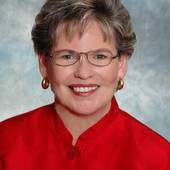ALAMEDA, CALIFORNIA PREPARES FOR THE NEXT DISASTER
Alameda, California Pepares for the Next Disaster. Japan had a GREAT earthquake and it was a scary event. You can prepare for the next "Big One" whether its an earthquake hurricane, tornado, flood or other disaster. Being prepared will give you a certain peace of mind to help you cope with the stress of a disaster.

First you should make a plan. Pick a location for your family to meet. Build a kit, read the following for more information about a kit. And finally get involved.
If you live in Alameda, California the Alamede Fire Department sponsors a program, Community Emergency Response Team (CERT). CERT provides a 6 week training program free for residents and people who work in Alameda. The next group of classes will begin in April. Don't wait, sign up now.
Here is the minimum you should have to survive a disaster. Knowing how to do CPR and first aid are a big plus.
1. You need enough water for at least three days, having water for one week is even better. You should have one gallon of water for each person per day.
2. Non-perishable food enough for three days but it is best if you have enough for one week. Don't forget a manual can opener.
3. A first aid kit.
4. Fire extinguisher
5. Flashlights and batteries
6. Portable radio with extra batteries or crank style radio which does not require batteries
6. Blankets and/or sleeping bags
7. Heavy shoes and extra clothing
8. Work gloves
9. Whistle
10. Large plastic garbage bags
11. Disinfectants to purify water if needed.

12. Personal items - Comfort kit - ( items in a bag that can be grabbed for quick evacuation)
Change of clothes
Toothbrushes/toothpaste
Wash cloth and towel
Moist towelettes
Mess kit for eating, or paper plates and plastic
utensils
Paper towels
A three day supply of medications
Record of Prescription /medical conditions
Important phone numbers: out of town contacts, doctors, hospital, family members
Proof of residency, copies of ID, copies of credit cards
Pre-paid Phone Card
Copy of health insurance
Cash, bills and coins(a roll of quarter is a good start, but you should have at least $50.00 in cash)

Extra pair of glasses
Toilet paper
Extra keys to house and autos
13. Pet food, leash and pet medications for your pets
These are just essentials. You can probably think of other things that should be in your kit. To help you prepare for the next disaster contact the Red Cross for more information.

Comments(7)